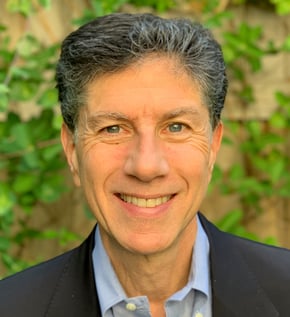We survey three technical innovations in wealth management that will fundamentally change the industry.
This is a time of extraordinary innovation in wealth management. While we understand that many practitioners are now focused on the short-term concerns of their clients, we think it would be a mistake to lose sight of the big picture. In this post, we’d like to highlight three recent developments that have the potential to fundamentally change the wealth management industry.
1. Pure Alpha Portfolios
The recent market downturn has illustrated the sometimes crippling disadvantage of owning portfolios whose performance is tied closely to the market as a whole. There is a better way. They’re called pure alpha portfolios (PAP), and they are the future of all asset management.
Modern Portfolio Theory, in particular, the Capital Asset Pricing Model (CAPM),1 suggests that the expected return of any asset should be equal to the risk-free return plus a risk premium equal to the expected return of the market above the risk-free rate times “beta”, the risk of the asset to the market.2 This work fundamentally changed how asset managers were judged. It was not enough to simply do well. Instead, managers were judged by their “alpha”, typically interpreted to mean the return of their portfolios in excess of the return of an appropriate benchmark or the returns given by CAPM. In this new framework, in the presence of investment skill, the return of an asset is that given by CAPM plus a new term, alpha.3
This conceptual framework, though near universal, is fundamentally flawed. Long-only asset managers working within this paradigm invariably create portfolios whose returns are weighed down by their beta component. Some long-short hedge funds avoid this dead-weight beta exposure, but at the cost of significantly increased risk, lower volatility and higher fees that typically consume more than 100% of the alpha returns.
Pure Alpha Portfolios fix this problem. PAPs are long-only portfolios with no beta component — their returns are exclusively alpha. As conventionally used, “alpha” refers to excess positive returns. A pure alpha portfolio is therefore definitionally determined to outperform the relevant benchmark. This renders traditional portfolios, weighed down by beta-driven returns, obsolete. Wealth and asset managers should expect that, with remarkable rapidity, all portfolios will soon be PAP.
2. 24/7 video conferencing
The COVID-19 outbreak has forced advisors to replace in-person meetings with video conferencing. This is seen by most as a prudent but second-best solution. However, forward-looking advisors recognize possibilities that others miss, an opportunity to leverage video conferencing technology to substantially improve service and deepen relationships. We see three emerging trends:
- Cost savings that can be passed on to clients. In-person facilities are expensive. Video backdrops are not. This makes it possible for advisors to meet in luxurious virtual offices whose real-world equivalent would be beyond the budget of all but the largest wealth management firms — architect-designed, spacious, opulent and spotless. Advisors can even save on businessware, as they need only dress professionally above the waist.
- 24/7 service. Most advisory offices close at night and on weekends. With video conferencing, the artificial distinction between home and office is eliminated, allowing advisors to serve clients day and night, seven days a week. It is a higher level of service that will become the new standard.
- Just-in-time advice. Having an “office” that doesn’t close is just the beginning. The real win is to leverage 24/7 availability to break away entirely from the idea of operating by calendar. Life and important life decisions don’t happen on schedule. The idea that advisors can serve clients with guidance offered at a place and time divorced from the real-world concern of clients is anachronistic, a reflection not of how clients are best served but of past technical limitations. With video conferencing technology, these limitations disappear. Advisors can be there not when the calendar says so, but when they’re needed. Whether it’s a big decision, “should I propose”, or a small one, “should I order a latte”, 24/7 advisor/client video conferencing enables advisors to be there, real time, to offer sound guidance and advice.
Used in conjunction with occasional in-person meetings (which will simply be seen as ultra high definition video conferences), these boundary-breaking uses of remote conferencing will create a new standard of client care and service.
3. ROLL: an ETF that creates a new asset class
The basic asset classes that define almost all wealth management portfolios — equities, real estate, bonds, precious metals, etc — have remained static for decades. Cryptocurrencies and “Alts” (alternative investments) might be considered new asset classes, but Alts are really just a catchall category with no consistently defined risk characteristics, and cryptocurrencies have yet to prove themselves as useful risk diversification instruments. ROLL, however, will quickly establish itself as an invaluable standard asset class.
ROLL is an asset-backed ETF that provides investors with exposure to the current market’s highest performing asset: toilet paper. ROLL’s price is tied to a basket of major toilet paper brands and provides a convenient, liquid, cost-effective alternative to the physical possession of toilet paper reserves. At their discretion, ROLL’s managers may also include forest-management equities (up to 5%), debt instruments reflecting conservation of forested land (up to 3%), and bulk purchase of certain pulp-based goods to be stored in the safe keeping of the managers (up to 50%).
ROLL, and a companion counter-cyclical ETF, BIDeT, set a new standard for financial instrument innovation, one that responds to market demand, providing investors with needed diversification and comfort.
Innovation never stops
Pure Alpha Portfolios, 24/7 video conferencing and ROLL ETFs are just the beginning, the tip of the iceberg of a wave of macro-scale quantum-leap advancements that will lead to a groundswell of groundbreaking, next generation, industry-leading products and services. The world of wealth management will never be the same.
1 In 1990, William Forsyth Sharpe, Harry Markowitz and Merton Miller were awarded the Nobel Memorial Prize in Economics for their work in asset price modeling and optimal portfolio construction. Markowitz introduced Modern Portfolio Theory and the notion of efficient-frontier portfolios. Sharpe built on Markowitz’s work to create the Capital Asset Pricing Model (CAPM).
2 Formally: RA = Rf + 𝛽Rm + 𝜀
3 Formally: RA = Rf + 𝛽Rm + 𝛼 + 𝜀



COMMENTS